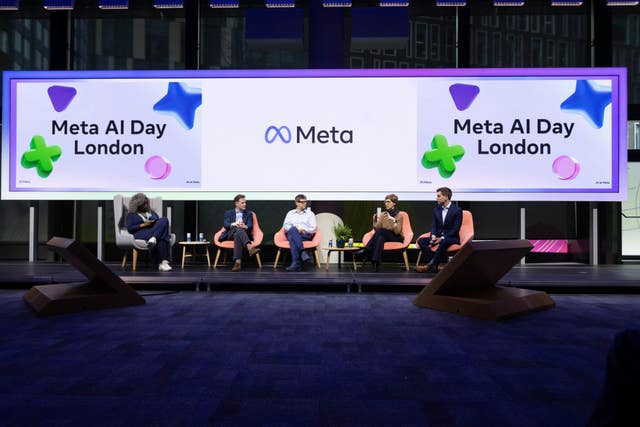
Shelagh Fogarty 1pm - 4pm
9 April 2024, 14:54

The former deputy prime minister is now head of global affairs at tech giant Meta.
Artificial intelligence (AI) can be a “sword and a shield” against harmful content, not just a tool to spread it, Sir Nick Clegg has said.
The former Liberal Democrat deputy prime minister is now the head of global affairs at tech giant Meta, the parent company of Facebook, Instagram and WhatsApp.
Speaking during an AI event at Meta’s London offices, Sir Nick said that while it was “right” to be “vigilant” about generative AI being used to create disinformation to disrupt elections, he said AI was the “single biggest reason” Meta was getting better at reducing the spread of “bad content” on its platforms.
In 2024, billions of people are set to go to the polls with elections due in a number of the world’s largest democracies, including the UK, US and India.
It has led some experts to warn of the potential threat posed by the rapid rise of generative AI tools – including image, text and audio content apps – and the possibility of them being used to spread misinformation and disinformation with the aim of disrupting democratic processes.
A number of senior UK politicians have already been the subjects of so-called deepfakes, which have spread on social media.
And on Tuesday, fact-checking charity Full Fact said the UK was currently vulnerable to misinformation, and more government intervention was needed on the issue with elections on the horizon.
Sir Nick said focus on the issue was important, but argued that good AI was potent protection against bad AI, and that Meta and others had the tools needed to fight the spread of harmful material.
“I would urge everyone – yes, there are risks – but to also think of AI as a sword, not just a shield, when it comes to bad content,” he said.
“If you look at Meta, the world’s largest social media platform, the single biggest reason why we’re getting better and better in reducing the bad content that we don’t want on Instagram and Facebook is for one reason; AI.”
He added that the use of AI to scan Meta’s platforms to find and remove harmful content had reduced the levels of bad content by “50 to 60% over the last two years” meaning that now “for every 10,000 bits of content, one bit of content might be hate speech”.

“Some of the work teams have been doing inside Meta to improve the way that we use our most advanced AI tools to triage content, so that we make sure that the 40,000 people we have working on content moderation really look at the most acute edge cases and they don’t waste a lot of their time looking at stuff that is inoffensive or not a problem has really improved rapidly in recent months,” he said.
“It is right that there is an increasingly high level of industry wide cooperation, particularly this year because of this unprecedented number of elections.
“We should be vigilant, but I would urge you to also think of AI as a great tool to navigate that difficult landscape and I’m quietly optimistic that the whole industry is trying to really lean into this as cooperatively as possible.”
During the event, Sir Nick also announced that Meta’s next AI large language model – used to power AI tools, including chatbots built by Meta and other firms – would be released shortly.
Sir Nick said the new model, known as Llama 3, would begin to roll out “within the next month, hopefully less” and would continue over the course of the year.